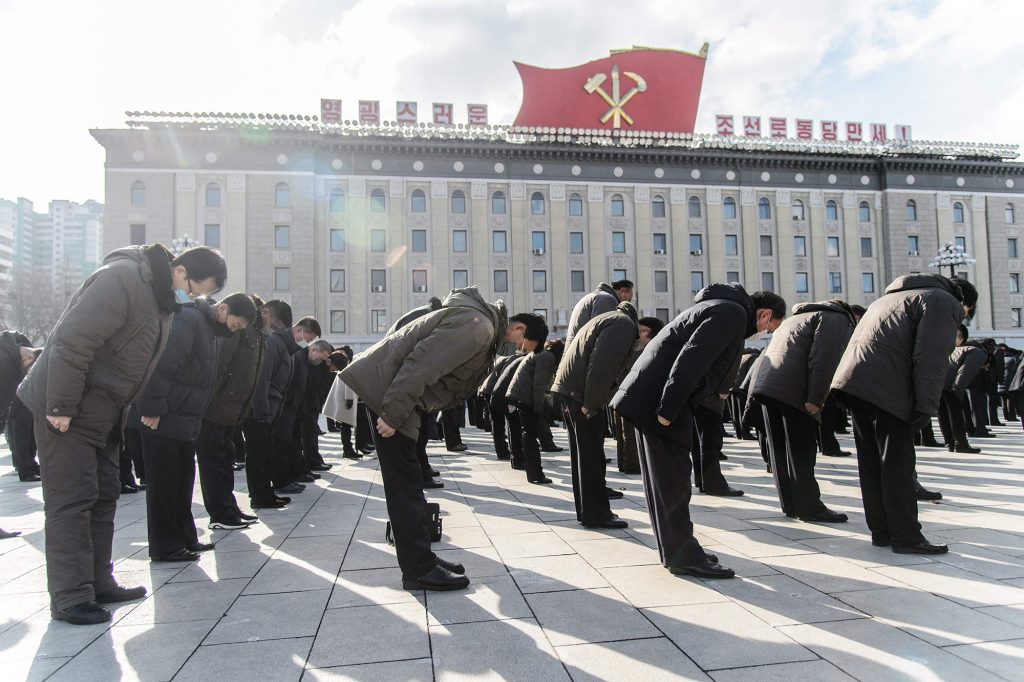No one in North Korea was allowed to buy provisions from grocery shops December 17 to mark the death anniversary of the supreme leader of the country Kim Jong Un’s father, Kim Jong Il, who had ruled for 17 years until his death in 2011. Ironically, within a week of over 100 countries attending a US-sponsored virtual Summit for Democracy, the world is made to witness the height of dictatorship and trampling of individual freedom in North Korea. A ban has been imposed by the authoritarian regime on exhibiting in public the simplest of human emotions such as laughing and crying for 11 days when the country is in a state of mourning to grieve the death of their past leader who could not even free them from the shackles of hunger during a severe food crisis. What the North Koreans are being made to do is but a continuation of a practice, with even more harshness, being followed for the past decade. Many people who were caught drinking or being intoxicated during the mourning period in the past were arrested and treated as ideological criminals. They were taken away and never seen again.
What is appalling this time is the diktat that even if someone’s family member dies during the mourning period, they would not be allowed to cry out loud and the body must be taken out only after the mourning period is over. People would not be allowed to celebrate birthdays either. The state television broadcasts showed people observing several moments of silence and bowing before portraits and statues of the departed leader, while air-raid sirens and car horns could be heard blaring and beeping. Kim Jong Un was shown with hundreds of officials at a ceremony outside the Kumsusan Palace of the Sun in the capital, Pyongyang, where the body of North Korea’s founding leader, Kim Il Sung, also lies in state under glass. The three generations of the Kim family have ruled the country since 1948.
The question is whether the outpouring of grief is sincere or contrived, a product of brainwashing. Some North Koreans are believed to be sincerely sorrowful. But, analysts explain a minority who have benefited under Kim Jong Il’s rule, belonged to the category of sincere mourners. Though the state media showcased the wailing students from Pyongyang’s premier Secondary School as genuine expression of grief, fact is this school is where the elites, benefiting from the regime, go. But it is surprising that teens of a higher secondary school would actually be bothered to cry or laugh at the death anniversary of any leader who has passed away long back.
To complete the picture of authoritarian rule, state police officers have been deployed to watch for people who fail to look appropriately upset during the mourning period. From the first day of December, they have been tasked to crack down on those who try to destroy the mood of collective mourning in any way. It is a month-long special duty for the police.
To keep up the illusion of humane conduct of the regime, citizen groups and state-owned companies have been ordered to take care of those in poverty during the period of mourning, as the country is in the grip of a food crisis. The message that is being given out is social order and safety must be ensured and companies are being made to collect food to give to residents and employees who cannot come to work due to food shortages. Instructions have also been given to help out the ‘kotjebi’ (North Korea’s street beggars).
Kim Jong Il ruled North Korea from 1994 until his death in 2011, and was then succeeded by his third and youngest son, current leader Kim Jong Un. Words trickling down from North Korea give a grim picture of the citizens’ suffering during the period of mourning. The common refrain of many people is that the living are being forced to mourn the dead leader to death.
Even the services of old soldiers who had worked during Kim Jong Il’s tenure are being used to deliver lectures to workers in factories on the supposed dedication of the departed leader “in the cause of the people.” The propaganda is so blatant that reports emanating from North Korea suggest the people want food, coal and firewood during the winter and the raging COVID pandemic rather than lectures.
North Korea is facing acute poverty and hardships because of a series of international sanctions over its nuclear weapons and ballistic missile programmes. But, the great dictator ruling the country is least bothered and continues to deny basic human needs to his people. The votaries of democracy need to seriously ponder over how to help the hapless people rather than organising summits to belt out inane lectures on the values of democracy. On the other hand, it is difficult for the international community of nations to act against a country like North Korea, which is highly weaponised and nuclear armed.
